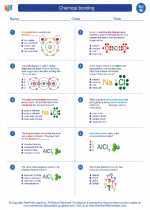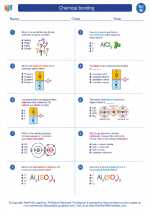Carbonation
Carbonation is a chemical reaction in which carbon dioxide gas (CO2) dissolves in water to form carbonic acid (H2CO3). This process is commonly associated with the formation of carbonated beverages, such as soda or sparkling water. However, carbonation also plays a significant role in natural processes, such as the formation of caves in limestone and the buffering of pH in the ocean.
How Carbonation Occurs
When CO2 gas is dissolved in water, it reacts with the water to form carbonic acid according to the following equation:
CO2(g) + H2O(l) → H2CO3(aq)
The carbonic acid can then dissociate into bicarbonate ions (HCO3-) and hydrogen ions (H+), affecting the pH of the solution.
Applications of Carbonation
Carbonation is widely used in the beverage industry to produce fizzy drinks. When CO2 is dissolved under pressure in a liquid, it is released as bubbles when the pressure is reduced (such as when a soda can is opened), creating the characteristic fizz and bubbles.
Additionally, carbonation is used in water treatment processes to stabilize the pH and remove impurities. It also plays a role in the natural weathering of rocks and the formation of karst landscapes.
Study Guide
- Define carbonation and describe the chemical reaction involved.
- Explain the role of carbonation in the production of carbonated beverages.
- Discuss the natural processes influenced by carbonation, such as the formation of caves.
- Compare the effects of carbonation on different materials, such as limestone and metals.
- Explore the environmental impact of carbonation, including its role in the carbon cycle and ocean acidification.
◂Science Worksheets and Study Guides Eighth Grade. Chemical bonding

 Worksheet/Answer key
Worksheet/Answer key
 Worksheet/Answer key
Worksheet/Answer key
 Worksheet/Answer key
Worksheet/Answer key
 Vocabulary/Answer key
Vocabulary/Answer key
